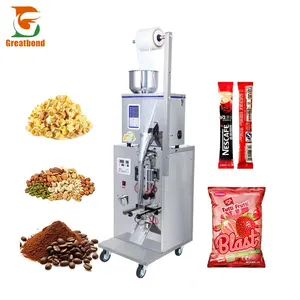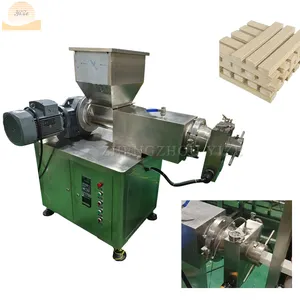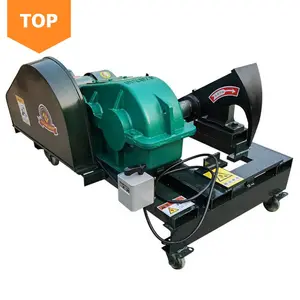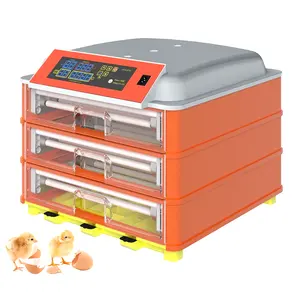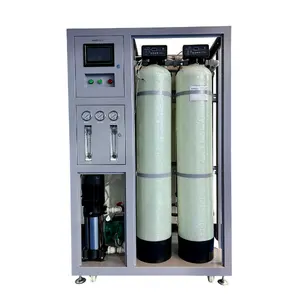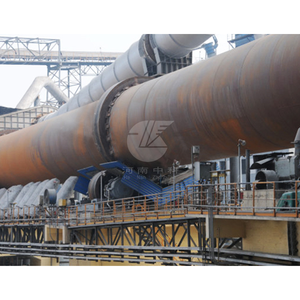Popular in your industry












































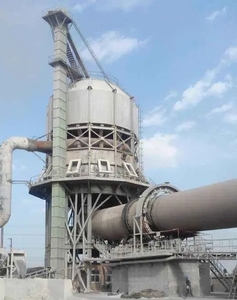












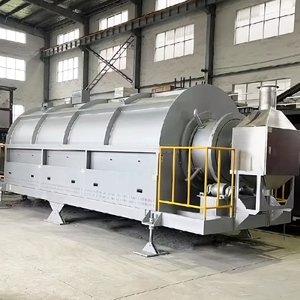








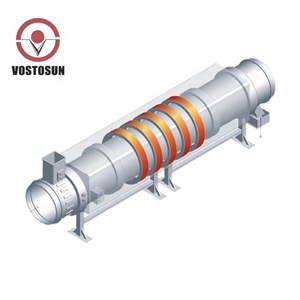




Related Searches:




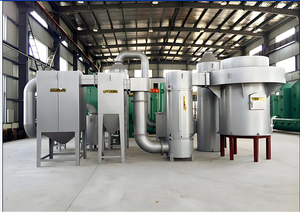








































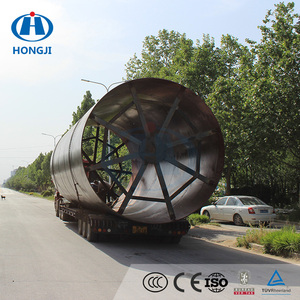
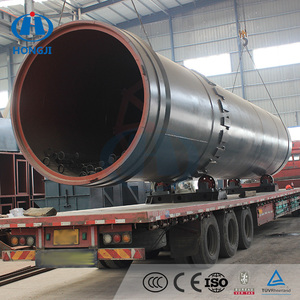


























































































Top categories
About rotary kiln incinerator
Introduction to Rotary Kiln Incinerator
The rotary kiln incinerator is a specialized industrial machine designed for the thermal destruction of solid, liquid, or gaseous waste materials. It utilizes high temperatures in a refractory-lined drum to efficiently and safely combust various types of waste. This process helps in reducing the volume of waste, minimizing environmental impact, and recovering energy from the combustion.
Design and Functionality
The design of a rotary kiln incinerator is crucial for its efficiency and effectiveness in waste treatment. Typically, these incinerators consist of a cylindrical steel shell, refractory lining, burner, waste feed mechanism, and an exhaust system. The waste is fed into the rotating kiln, where it is exposed to high temperatures (800-1200°C) in an oxygen-rich environment, leading to complete combustion.
The rotating motion of the kiln ensures thorough mixing and uniform distribution of heat, optimizing the incineration process. The refractory lining helps in maintaining high temperatures and protecting the outer shell from heat damage. Advanced control systems regulate the kiln operation, ensuring precise temperature control and efficient waste treatment.
Technical Specifications and Capabilities
A rotary kiln incinerator typically has a capacity ranging from a few hundred kilograms to several tons per hour, making it suitable for small to large-scale waste management applications. The power requirements vary based on the size and processing capacity of the incinerator, with most units operating on electricity or fuel such as natural gas or diesel.
Key technical specifications include the kiln diameter, length, rotational speed, heating capacity, residence time, and emission control mechanisms. These parameters determine the incinerator's throughput, energy efficiency, and compliance with environmental regulations regarding emissions control.
Operational Process of Rotary Kiln Incinerator
The rotary kiln incinerator process involves several stages to ensure effective waste treatment. First, the waste is loaded into the kiln through the feed mechanism. As the kiln rotates, the waste moves along the length of the drum, undergoing drying, pyrolysis, combustion, and gasification stages.
During combustion, the waste is converted into ash, gases, and heat energy. The combustion gases pass through the post-combustion chamber and are treated to remove pollutants before being released into the atmosphere. The ash residue is then discharged from the kiln for further processing or disposal.
Benefits and Advantages of Rotary Kiln Incinerators
Rotary kiln incinerators offer several advantages for waste management operations. They provide efficient and reliable waste treatment, reducing the volume of waste and minimizing environmental pollution. The high-temperature incineration process ensures complete combustion of organic materials, pathogens, and hazardous substances, resulting in safe disposal of waste.
Additionally, rotary kiln incinerators can recover energy from the combustion process in the form of heat or electricity, contributing to sustainable energy practices. These incinerators are versatile and can handle a wide range of waste types, including industrial, medical, and hazardous wastes, making them suitable for various industries and applications.
Cost Considerations and Pricing
When considering the purchase of a rotary kiln incinerator, factors such as initial investment, operating costs, maintenance requirements, and regulatory compliance should be taken into account. The rotary kiln incinerator price varies depending on the size, capacity, technical specifications, and additional features of the incinerator.
It is essential to evaluate the total cost of ownership, including installation, training, spare parts, and ongoing maintenance, to determine the long-term affordability of the incinerator. Some suppliers may offer customization options or turnkey solutions that include installation and commissioning services, streamlining the procurement process for buyers.
Overall, the kiln incinerator is a critical technology for sustainable waste management, offering efficient and environmentally sound solutions for waste treatment and disposal. By understanding the design, functionality, technical specifications, operational process, benefits, and cost considerations of rotary kiln incinerators, businesses can make informed decisions to meet their waste management needs effectively. Visit Alibaba.com for a wide range of rotary kiln incinerators and related products to enhance your waste management practices.
